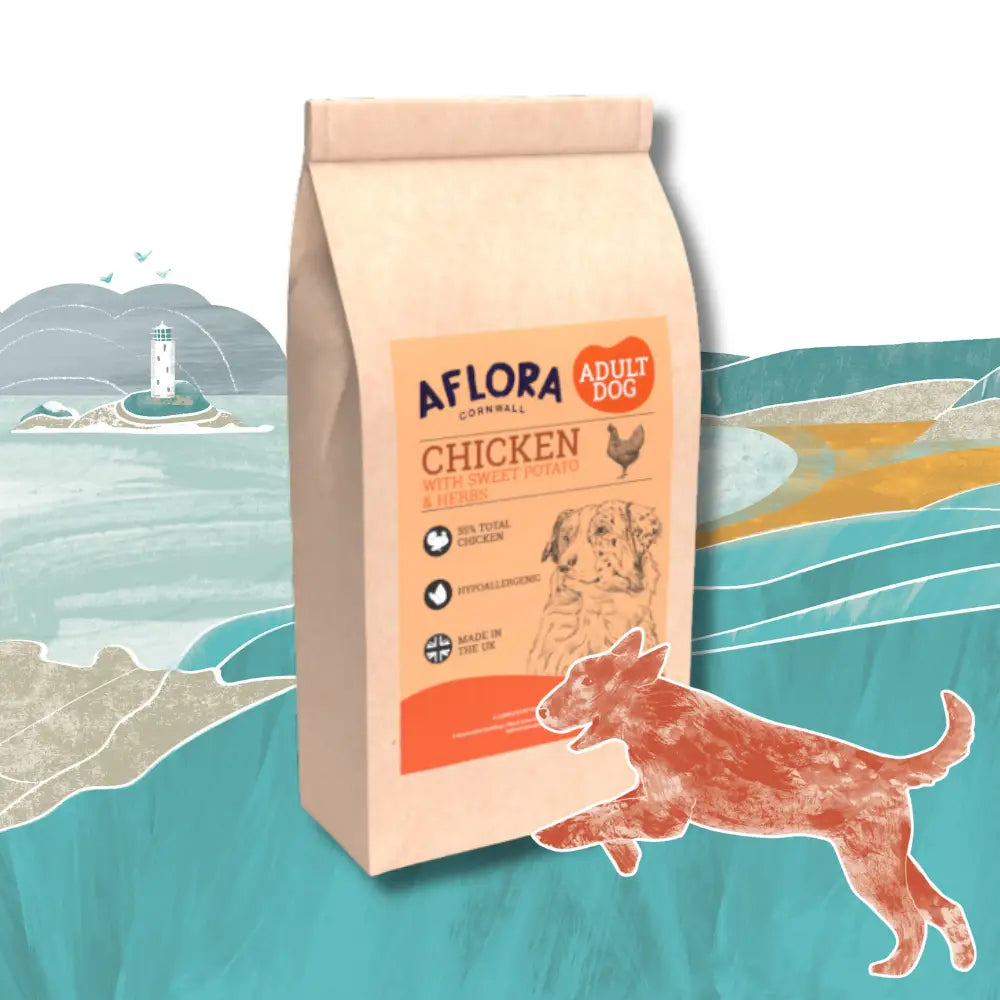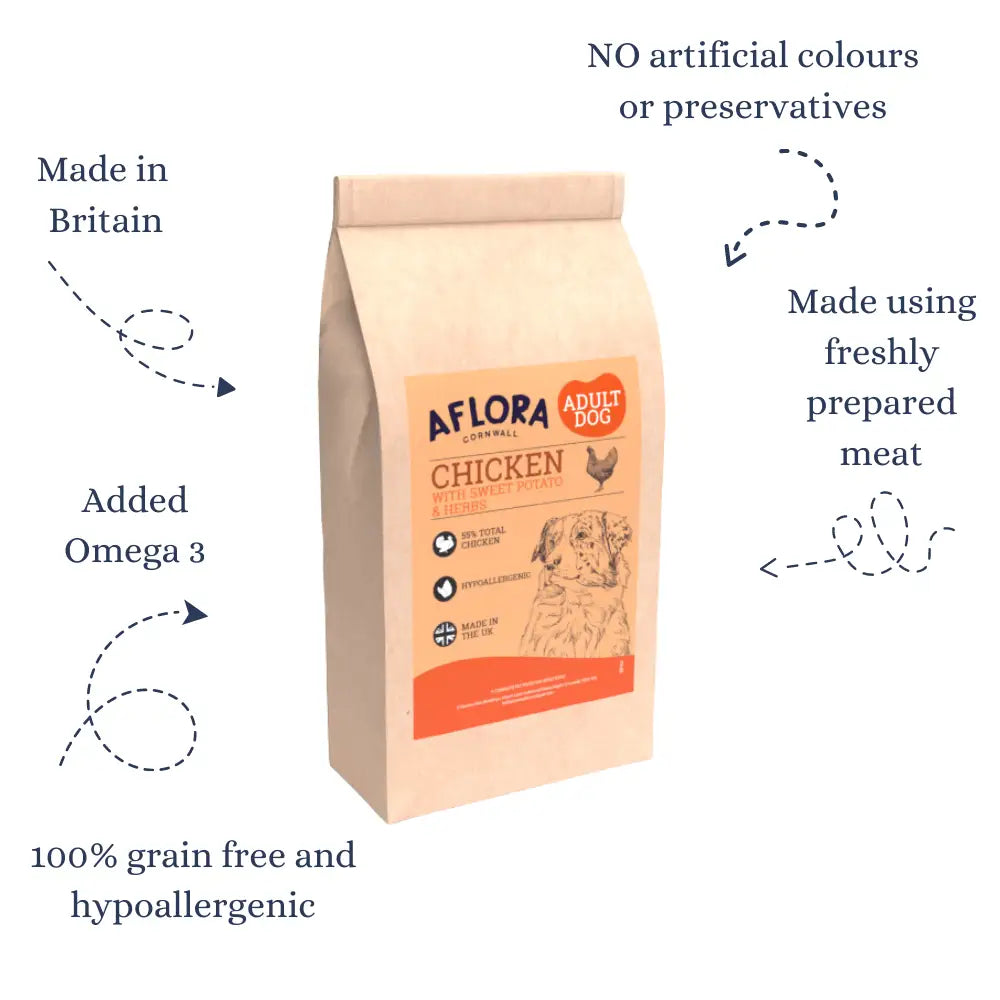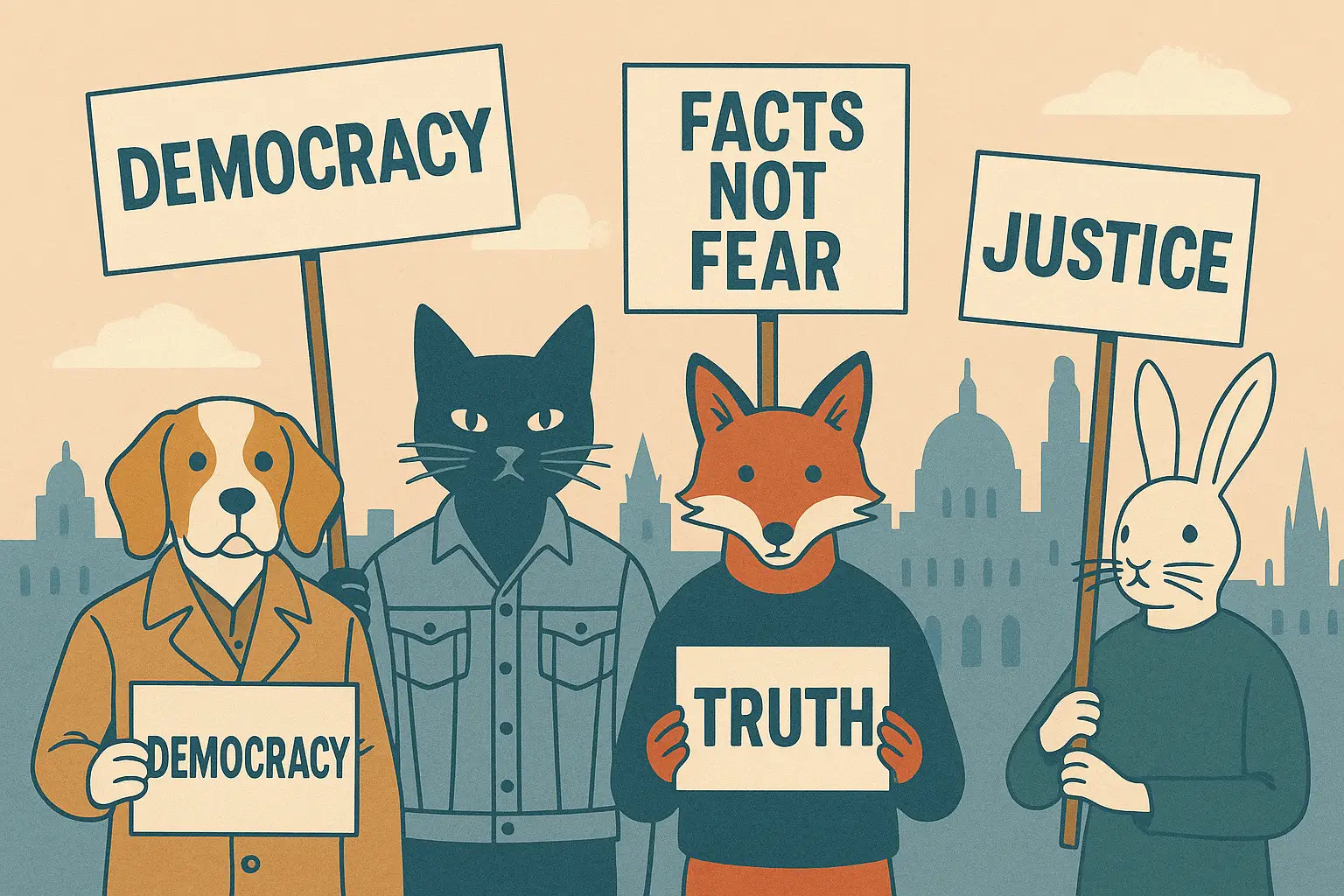Over the past week, I’ve had a lot of conversations sparked by this project. Some online, some in person, some with myself. Some with AI.
They’ve ranged from Gaza to Glastonbury, from T-shirts to think tanks, from the future of democracy to whether anyone still trusts anything anymore. At first glance, they might seem unrelated — but there’s a thread running through them all:
People are paying attention. But they’re also paralysed.
I’ve watched friends stay quiet out of fear of saying the wrong thing. I’ve seen others speak out and be punished for it. Some have disappeared down digital rabbit holes, convinced that nothing is real. Others are desperate for truth but don’t know where to find it anymore.
Launching Paws for Peace — a creative campaign rooted in gentle activism — has been both rewarding and revealing. I’ve seen hope, silence, fear, encouragement, apathy, and deep care — often all from the same person.
And so this post isn’t just about my campaign.
It’s about where we are right now — politically and culturally.
It’s about why so many of us feel confused, isolated, and disempowered.
And why now, more than ever, it matters to stay grounded, stay curious, and stay human.
The Cost of Confusion
In recent years, “conspiracy” has gone from niche internet fodder to everyday conversation. We’ve all felt it: that creeping sense that what we’re being told doesn’t quite line up with what we’re seeing.
And let’s be honest — a healthy level of scepticism is good.
It’s rational to question power.
It’s necessary to interrogate the media.
It’s wise to challenge what feels unjust.
But here’s where it gets dangerous:
When healthy scepticism turns into cynical paralysis.
When people stop voting because they “don’t trust anyone.”
When every news source is branded “propaganda” except the one that confirms your fears.
When conspiracy culture convinces people to opt out of reality — instead of reshaping it.
We stop thinking critically and start reacting emotionally.
We seek comfort in echo chambers, where everyone agrees but nothing ever changes.
And most importantly — we get distracted from what really matters.
🔍 Real Politics Suffers When Conspiracies Take Over
This isn’t a small thing. It weakens democracy.
-
Only 67.3% of eligible voters turned up in the 2019 UK general election.
-
In local elections, turnout is often under 40%.
-
Mistrust, confusion, and apathy are strategic tools — they disempower populations without firing a shot.
And while conspiracy threads flood the likes of TikTok, the real tools of control — lobbying, deregulation, policy manipulation — continue quietly and effectively, unchecked.
That’s why this week’s launch of a new political party by Jeremy Corbyn, while imperfect, is still a hopeful moment.
Not because he’s the answer to everything — but because it shows movement is still possible.
It proves there’s still oxygen in the political system — if we choose to breathe it.
It’s no wonder people feel disconnected from politics — even the word itself feels removed, like something done to us, rather than by us.
But politics should be the public in motion.
It should be the collective shaping of our lives, our resources, our futures.
Instead, what we have now is a kind of stage show — where the script is written not by constituents, but by donors, party whips, think tanks, and PR advisors.
Where the freedom to represent is traded for the pressure to toe the party line.
And where “debate” often means two people yelling rehearsed lines across a chamber with empty benches.
This week I watched a clip from Gary’s Economics — one of several he's shared lately — where he calmly laid out how national budgets aren’t like household budgets, and how that flawed analogy has been used to justify cuts, privatise services, and tell the public “we can’t afford” care, culture, or climate action.
It’s clear, accessible economic education — and it’s spreading like wildfire, precisely because it’s not coming from the usual places.
He’s not a party figure. He’s not chasing votes. He’s just trying to unpick the script and hand the pen back to the people.
And people are listening — because there’s a growing hunger not just for new policies, but for new frameworks.
For politics that doesn’t just reshuffle the deck — but asks who built the table in the first place.
Good News This Week (Yes, There Is Some)Despite everything — the disillusionment, the noise, the spirals of fear and fatigue — there are still sparks of progress worth holding on to.
Because while the loudest voices often dominate the feed, the quiet work of justice and truth is still happening.
This week, that looked like:
📍 1. A new political alternative on the horizon
Jeremy Corbyn’s new party, Peace & Justice, formally registered and poised to challenge the two-party stronghold.
While we can (and should) debate whether leadership should better reflect younger, more diverse Britain — the mere existence of a party not bound by corporate donors or party whips is a sign of democratic muscle. It says: we’re not done yet.
⚖️ 2. The Hague calling for reconciliation and accountability
For the first time in months, there’s been movement in the legal system that governs international law. The International Court of Justice has made renewed calls for reconciliation in Gaza and the recognition of humanitarian law violations — however slow and symbolic this may feel, it represents a reassertion of justice in a world increasingly ignoring it.
📰 3. Investigative journalism still doing the hard work
While mainstream headlines come and go, publications like Private Eye, and figures like Ian Hislop, continue digging deep.
Their work on lobbying, PPE scandals, NHS privatisation, and parliamentary transparency doesn’t just inform — it fights erosion.
It’s watchdog journalism in a time where most media feels more like marketing.
🎧 4. Culture remains a platform for truth
Artists like Paloma Faith, in her podcast, and musicians like Bob Vylan, Kate Nash and Massive Attack, continue to speak out — not perfectly, but powerfully.
Culture is still where truth often sneaks through.
Through lyrics, stories, and conversations, the ground is shifting, even if the headlines don’t always show it.
What all of this says is: we’re not powerless.
We’re not voiceless.
And though the pace feels glacial, change is still happening — not through noise or rage, but through steady courage.
A Quiet Manifesto
I didn’t write this blog to prove a point.
I wrote it to reclaim a sense of direction — for myself, and maybe for you too.
Because in a time where everything feels louder, angrier, and more chaotic, we need to find stillness again.
Not passivity — stillness with clarity.
With curiosity.
With conscience.
We need fewer shouting matches and more conversations with intent.
Fewer “hot takes” and more “slow thoughts.”
Fewer hashtags, maybe — and more human action.
And I truly believe creativity can help carve that path.
The Paws for Peace project started as something small.
A t-shirt. A blog. A drawing of a dog in a hat.
But it’s become a kind of quiet rebellion — a way to resist despair without fuelling the noise.
To express discontent without falling into hopelessness.
To say:
We’re watching. We’re thinking. And we still care.
So if you’re here reading this — maybe you care too.
Even if you don’t know what to do next.
Even if the news makes your chest tighten.
Even if you’ve lost faith in “them.”
You’re not alone.
You’re not helpless.
And this isn’t over.
You don’t have to change the world today.
But you can change how you show up in it.
You can vote.
You can read deeply.
You can ask better questions.
You can make something — even small — that reflects what you believe.
And maybe, that’s how the quiet things build.
How truth survives the noise.
How hope becomes contagious again.
🤖 In Conversation with AI: A Quiet Experiment
This blog — like the Paws for Peace project — is part of something bigger.
Not just a creative outlet, but an experiment.
A real-time exploration of how AI can be used differently — not to replace people, but to reconnect them.
I’ve written this with the help of AI.
Sometimes as a co-writer, sometimes as a sounding board, sometimes just to help me stay focused while balancing work, children, and life.
I wanted to see what might happen if I stopped viewing AI as a threat or a gimmick —
and instead saw it as a partner.
Could it help me get ideas out faster?
Could it support clarity when my thoughts felt stuck?
Could it help me express something honest, human, and hopeful?
So far, the answer is yes.
This isn’t a tech demo.
It’s not a sales pitch.
It’s a first-person experiment — and an invitation.
If you’ve ever felt like you had something to say but didn’t know where to start —
maybe this is your sign that you can.
And you don’t have to do it alone.

























